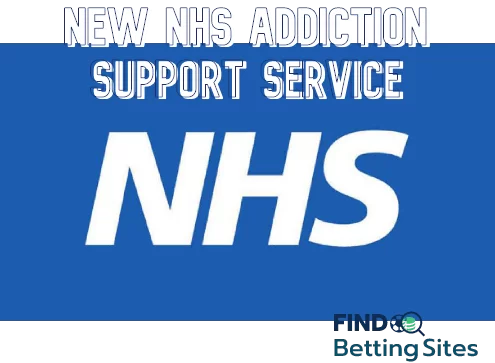New NHS gambling addiction support service launched in East Midlands
27.06.2023
- News


Carl Hughes Betting Expert
Updated:June 27, 2023NHS England has announced the launch of a new mental health project which would help treat and support people who have experienced the effects of harmful gambling. Known as the East Midlands Gambling Harm Services, the programme will be targeted at people who have a gambling addiction and need help to overcome it. The service will be free of charge and staffed by experienced NHS workers, with the team featuring social workers, psychiatrists, and clinical psychologists. The programme will be ran from Derby by the Derbyshire Healthcare NHS Foundation Trust and will minimise the harm experienced by a small percentage of people who develop harmful habits leading them to being unable to control their use of betting sites or other forms of gambling.
Those who need to take advantage of the service will be able to participate online via virtual treatment programmes and activities, or in person at group workshops and other events. The service will receive referrals from GPS in the area, however self-referrals will also be accepted. The needs of each patient will be assessed and they will be provided with a bespoke personalised treatment to meet their individual needs. Some of the techniques and approaches used to treat harmful gambling will include CBT – Cognitive Behavioural Therapy, as well as a method known as Psychodynamic psychotherapy which treats the source of people’s need to resort to problem gambling by targeting issues such as emotional or relational difficulties.
Some people have already spoken out in support of the service. One of them was 46-year-old Chris Kershaw from Kegworth, Leicestershire. Chris started gambling when he was 13 years of age, with his preferred game at the time being fruit machines. From there, he went on to spend significant amount of money betting on sporting events such as horse racing and football. Chris used to use both betting sites and retail betting shops to place his bets. Chris, who hasn’t placed a bet in 17 years, said that a support group helped him turn his life around. He explained that the new service will be a great addition to the resources available to those struggling with gambling harm and will “help people lead better, more fulfilling lives”.
Chris added:
“For me 24/7 compulsive gambling led to a breakdown and suicide attempt in February 2006. I lost everything – not just money but also many relationships, which had a massive impact on my mental health.”
Not much information is available regarding the funding of the new NHS service, however its positive prospects and the massive difference it is expected to make in the lives of those who are addicted to various forms of gambling has again brought to light the debate about introducing a gambling levy and what it should be used for. In its annual report on gambling harm, the NHS has estimated problem gambling in the UK to sit at 0.3%. While prevention and protection from harmful gambling is very important and all licenced betting sites in the UK are taking it very seriously, programmes like the new East Midlands Gambling Harm Service are very important for dealing with the aftermaths of problem gambling, which are known to have a very negative impact on individuals and communities and are associated with a lot of psychological and financial harm.
2 months ago, the UK government released its long-awaited Whitepaper on UK gambling, which made the controversial suggestion to introduce a flat-rate levy on all betting sites and other betting and gaming businesses in the country. The Government has not yet determined how much the levy will be, but is planning to use it to fund NHS projects such as the East Midlands Gambling Harm Services. Several issues have been raised in relation to this proposal – most importantly that, historically, the NHS has refused to use funds collected from betting sites and other gambling providers, with the reason being that the organisation finds it unethical to use the money. Another issue, as pointed out by the UK Betting and Gaming Council (who are in principle in favour of a levy) is that a flat rate would lead to the closure of many small independent betting businesses which are already struggling.
Regardless of the discussions about the betting and gaming levy, the new gambling harm support service is an excellent initiative by the NHS which is likely to make a massive difference in the lives of those affected by harmful gambling. It is likely that the service will show excellent results from the very beginning, which may allow the NHS to make a strong case for introducing similar programmes in other areas in the UK.
